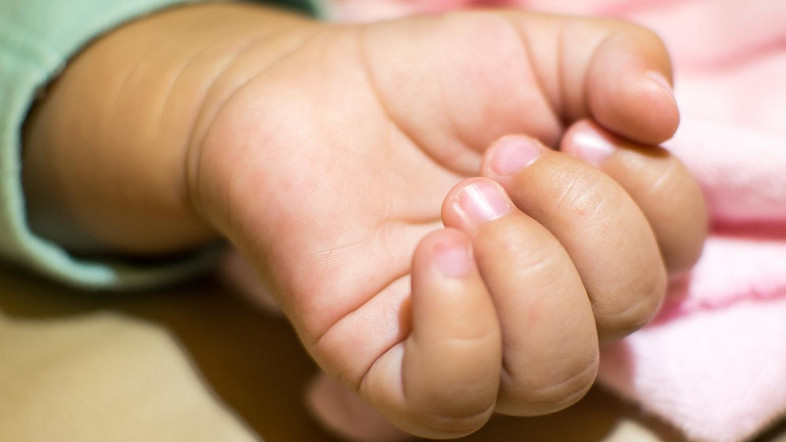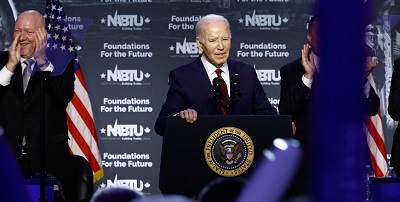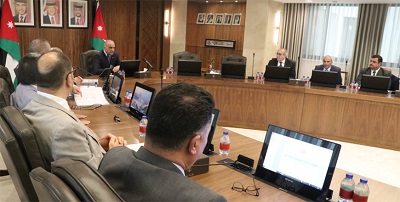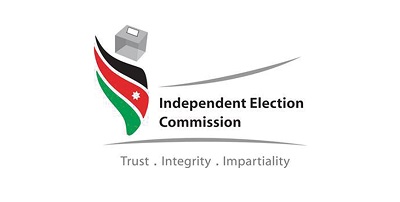Baby talk: Why gestures could be as important as first words

Al Arabiya
If there’s one thing I’ve learned since having a child it’s not to sweat the small stuff.
Some children reach milestones earlier than their peers and that’s just the way it is. Indeed, my daughter was well over a year old before she slept all night whereas many of my friend’s children seemed to be getting a full 12 hours from just a couple of months old.
When it comes to panicking over milestones; speech is always a big one for parents. Anxious for reassurance that their little darlings are developing accordingly, mums and dads find themselves desperate to hear that first word so they can safely tell their comrades at playgroup that their child is “normal.”
So parents feeling the pressure may be reassured to hear that gestures are just as important as words when it comes to milestones.
Researchers from the UK’s University of Manchester say that simple behaviors, such as holding up objects to show or share, are as significant when it comes to development and really help parents become effective baby whisperers.
Professor Elena Lieven explains: “Our research demonstrates that babies may be doing more to communicate than many of us usually assume, and at an earlier age. By understanding these early behaviors, parents have a great opportunity to help support their children’s later language development. Understanding babies’ gestures could be just as important as understanding their early language.”
Until now, studies mostly focused on an infant’s use of pointing with their index finger but the Manchester research was based more on pre-linguistic behaviors and interactions between child and caregiver.
The researchers found that showing and giving behaviors are strong predictors of how often infants use pointing later on. How caregivers respond to these behaviors, in particular whether they engage in language-rich bouts of interaction, relates to the frequency of pointing behaviors as infants get older. This demonstrates the importance of parents picking up on early gestures.
First-time dad Anthony Hulme says he was baffled when his daughter first started making gestures.
He explains: “When Connie realized she could control her hand she would stick it in the air and stare for a couple of minutes at her fist!”
And Clare Lange says she enjoyed the gestures but didn’t read too much into them.
She says: “I think Archer’s first real communication was raspberry blowing which he did for a few days before moving to another trick! I also think all the milestones and comparisons can unnecessarily add to people’s anxieties about their child’s development and intelligence. It’s like there’s too much info out there.”
Professor Lieven says it’s a good idea to talk to babies about the things they’re showing an interest in as it helps their language development.
She explains: “The ability to share and direct attention is an essential basis for typical language development and others have found that it is often impaired in children on the autism spectrum. Our findings provide useful guidance to both researchers and caregivers in the identification of infants’ early attempts to communicate about objects with their caregivers, and highlight the need for greater study of these early pre-linguistic behaviors.”
Encouraging signs
The Manchester research revealed talking to babies about the things they’re showing an interest in really helps their language development. And there are many more things you can do to boost their skills, says Doctor Bahjat Balbous, a Specialist Psychiatrist at Dubai’s Euromed Clinic.
He explains: “Mirror your child’s gestures as this will help them to grow in confidence. When he coos, coo back. When he gazes at you, make eye contact and talk with him. These immediate and attuned responses tell your baby that his communications are important and effective. This will encourage him to continue to develop these skills.”
Reiterating what the Manchester research team found that babies’ first gestures are a reliable indicator of how their language will develop, Dr Bahjat believes understanding these early behaviors gives parents the opportunity to help support their child’s later progress in communicating.
“Ask open-ended questions: “What do you think about today’s rainy weather?” “Where do you think the rain goes?” Talking with your child helps her see herself as a good communicator and motivate her to keep developing these skills. Help them build on their language skills in fun ways. If they are pretending to be a hungry caterpillar who wants to eat some food, ask them to name all the things they want to eat.”
Latest News
 'Sinwar Above Ground': Hamas official's revelation shocks Israeli Occupation
'Sinwar Above Ground': Hamas official's revelation shocks Israeli Occupation US president signs bill to provide new aid for Ukraine
US president signs bill to provide new aid for Ukraine Prime minister directs government to support IEC ahead of upcoming elections
Prime minister directs government to support IEC ahead of upcoming elections Parliamentary elections for 20th Lower House to be held on September 10 – IEC
Parliamentary elections for 20th Lower House to be held on September 10 – IEC Amman Chamber of Commerce says GDP grows by 4.4% in 2023
Amman Chamber of Commerce says GDP grows by 4.4% in 2023
Most Read Articles
- Palestinian prime minister, Jordanian ambassador discuss humanitarian efforts in Palestine
- US president signs bill to provide new aid for Ukraine
- Senate president, Rwanda’s ambassador discuss bilateral relations
- Prime minister directs government to support IEC ahead of upcoming elections
- 'Sinwar Above Ground': Hamas official's revelation shocks Israeli Occupation
- “Israel” withdraws main infantry brigade from Gaza
- Iran cuts Syria presence after strikes blamed on Israel —monitor
- European Parliament overwhelmingly condemns Iranian strikes against “Israel”
- US Supreme Court seems split on Idaho abortion ban
- Vaccines saved at least 154 million lives in 50 years — WHO